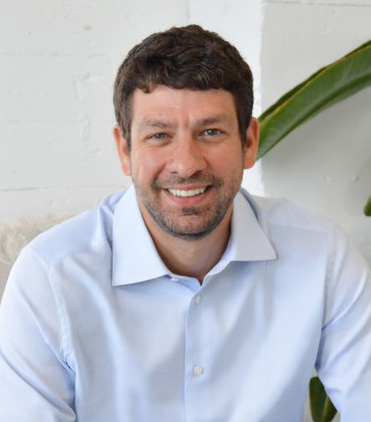Transcripts

Erik: Joining me now is Commodity Context founder Rory Johnston. Rory, it's great to catch you back on the show. You know, when I saw you on the schedule, I thought I just talked to Rory a couple of weeks ago. It's been months since we've had you on now. Everything's changed, though I guess you and I had a completely incorrect understanding of where this whole OPEC thing was going, because it's just been announced by none other than President Trump's campaign, that what's going on here is OPEC is working as hard as they possibly can to suppress oil prices, because they want to get Kamala Harris elected. I know this is exactly what you've been commenting on in the data that you follow so closely. Maybe not. What's going on here? Is this just politics? And more importantly, what is the real situation with respect to OPEC’s intentions here? What is their real intention?
Rory: Yeah, so that's exactly right. And I think you and I exchanged briefly on Twitter about this. So the statement from former President Trump was essentially along the lines what you said, going all out to depress oil prices in order to help elect Democrats and specifically Kamala Harris, because the belief being that Kamala Harris would be somehow better for OPEC. I assume the reference here is to Kamala’s 2019 statement that she would ban US fracking, which I don't think will ever happen. But again, I mean, it's useful, it's an election year, truth is kind of, and reality is secondary. But I think it's important, and I thank former President Trump for this hook. Because I'm writing a piece right now on really kind of disentangling the true extent of how much OPEC is actually supporting the market. It's important to note that while, we'll get to a second about, the current weakness in the market and what we're seeing, but most forecasters, whether it's the EIA, IEA, OPEC, or a whole bunch of different private sector forecasters, all generally expect that as OPEC extended its production cuts into the third quarter of 2024, that we're going to see a net deficit continued strength, at least in a fundamental basis in the oil market from that. But relative to what Trump was saying about going all out to produce and depress the price of oil, OPEC is doing the exact opposite. It's going all out to support the price of oil, excluding the COVID era cuts because I think those are a special case, but excluding COVID. The current amount of supply that OPEC is withholding from the market roughly 4 million barrels a day of realized tangible cuts relative to October 2022 levels when this new cutting cycle restarted again. That's the most crude that OPEC and OPEC+ is withholding from the market since the 2008/2009 financial crisis. These are crisis level production cuts and market supports. At a time when last year, demand grew by more than 2 million barrels a day. In any other year, this would be considered a strong year for oil markets. The only difference is that OPEC is supporting us multiple, you know $10, $20, $30, $40 higher than we were if OPEC was to completely release, but open the floodgates and release all the crude to the market, we would probably be sub $50 Brent. That's a lot of oil that's being withheld from the market. And I think, while I do not think that OPEC will release that all at once, I think obviously, OPEC, more than anyone else, wants high oil prices. The longer they hold these cuts back the longer they maintain this crisis level support for the market, the weaker discipline and kind of cohesion across OPEC+ becomes, and I think that is just a time series. You know, the longer you go on holding these cuts, the higher the probability that the whole agreement breaks down and the ultimate bearish scenario of all this crude coming back to the market comes all at once.
But if we're just looking at a base case, and that's not my base case, I should be very, very clear. We're looking at a base case, OPEC has said that it's going to start easing the latest tranche, about 2.2 million barrels of oil to 22 million barrels a day of production cuts back into the market beginning in October and extending a year forward into 2025. But if you look at most of the forecasts from the major agencies, IEA, EIA and OPEC itself, most of those agencies really don't seem to indicate that there's going to be enough room in the market to eat all those production cuts back without tanking the price. Now, Saudi oil minister Abdulaziz bin Salman has said that that plan is market dependent and I believe him on this. I think that it's unlikely that OPEC is going to go ahead with a full production cut easing, I think at best, they're going to do half and probably even less than that. But I think we're going to need to wait to see where we are, come October, to see when and how exactly they stickhandle the messaging around pushing that back. Because I think it's even more important than the message, the market is seeing the message to the membership because the reason that they had announced that cut easing was that they were trying to placate members, particularly the United Arab Emirates, which has been promised continually that they're going to be allowed to produce more just one day, just around the corner and so far, we haven't seen that

Erik: Joining me now is Marko Papic, Chief Strategist for BCA Research. Marko is a geopolitical specialist. And we're going to be talking about the US presidential race, the unexpected turns that it's taken, and what the consequences and impacts of that are going to be knock-on effects for that matter, on the US presidential election and beyond. Now, occasionally, we get arguments and complaints from people who say, you shouldn't talk about politics on an investing podcast. Look, this is MacroVoices, macro means macro-economic events, politics are among them. If you don't like hearing about politics on an investing podcast, don't listen to a macro investing podcast, look at one that uses a different strategy. If you are offended by the fact that we're going to have a very candid conversation about risk factors, other things that could go wrong, and other terms that this race could take, then skip ahead now to the postgame segment and dive into the chart deck with Patrick Ceresna.
Marko, let's start with a situation report. As of now, Tuesday morning, we're recording this a couple of days before our audience will hear it and a lot can happen at the rate the news flow has been coming out in the last few days. But as of the moment that we're speaking Tuesday morning, the President of the United States has not been seen in public for six days since last Wednesday, he was diagnosed with COVID. And it was announced or leaked, I should say, that people should expect an announcement over the weekend that maybe he would be dropping out of the presidential race. That announcement or that leak was very promptly refuted by the White House, which said, no, President Biden is absolutely positively not dropping out of the race. He's in it. He's staying in it. I think it was on Thursday, when President Biden himself said, look, it would take an act of God, nothing short of the Lord Almighty himself telling me to step out of the race would get me out of it now. Then over the weekend, there was no presidential address from the Oval Office, there was no Joe Biden on camera. There was a tweet from Joe Biden's Twitter account that said, Dear United States, I've decided that it's in the best interest of the party and the country for me to leave the presidential race, no explanation of why he was doing that, other than he's decided it was in the interest of the party. At this point, there were people, understandably, that everybody is going to wild speculation on conspiracy theories. The president's dead, the President's been abducted, the President's locked up in a basement being waterboarded. by Nancy Pelosi. I mean, every crazy imaginable thing has been suggested.
Marko, I don't think it's responsible for us to get into believing the conspiracy theories. But I think we should acknowledge that it's very understandable that people are jumping to them, when we've had such poorly managed communications. The last time this happened was 1968, Lyndon B. Johnson, dropping out of the race late, made and addressed to the people on television, so that his reason for doing that and so that the American people could be assured as he was dropping out of the race that he was doing so of his own volition. That's not happening here. And a lot of people are very concerned by it. They have scheduled an address from the President to the public on Wednesday. That hasn't happened yet. As we're recording, it will have happened by the time our listeners hear it, whether it's going to be live or on video or pre-recorded, hasn't been specified yet. What's going on here, Marko, this is not normal operations for the United States of America.
Marko: Well, first of all, thank you for having me on the show. I don't know if I can answer this question. I don't think anyone can really answer the question. I think the election process has always been a little bit of a wild west. And part of it is because in the United States of America, there isn't actually any constitutional provision. There isn't any real law for how parties select their leaders. In fact, almost every four years, they issue new rules and regulations, which parties go first, which goes second, there's state law on running primaries, on running, like local elections. And so, it's a mess. And it's exacerbated by the fact that President Biden has COVID and he is 81 years old. He was born in November of 1942. First of all, that means he was a voting adult, when LBJ quit the election in 1968, if you sort of want to think about it that way. But the other issue is that it probably reveals his vulnerabilities to being a candidate in this election, because getting COVID in 2024, for most of us is not a big deal, but for him it may really be. And that may be the reason that they're taking it a little bit more cautiously in terms of him speaking to the public.

Erik: Joining me now is Lyn Alden, founder of Lyn Alden Investment Strategy. Lyn, it's great to get you back on. It's been so long. Lyn, let's start with what you've been writing about this week, which is the way the market has been conditioned to rate hikes and rate cuts. What's your outlook?
Lyn: Right. So in the past cycle, we have kind of seen firsthand that the economy was more resilient to rate hikes than many would have expected. Basically, with the federal government having fairly short duration debt and most parts of the private sector having pretty long duration debt that's fixed, the economy was relatively resilient. As rate hikes occurred, the deficits got way larger, which in some cases, can be stimulatory for the industries that are on the receiving side of the deficits, and all that interest expense. And mortgages and corporate debt, a lot of that was shielded from that higher rate for quite a while. And so, one of the things I've been analyzing is to determine if that's going to be the case on the other side of this as well, if the US economy is going to be more desensitized to rate cuts than it normally has been in relative to other countries. So, from an American perspective, not a lot of Americans realize in other countries, homeowners, for example, are less likely to have, there's like a lower ratio of fixed rate, long duration debt, tied to housing in other countries. And so, they can be more sensitive to industry, it's on the up or down cycle. And so, this was kind of a perfect storm for the US being more resilient against rate hikes. And I think we can see the other side of this on the cutting cycle.

Erik: Joining me now is Tian Yang CEO and Head of Research for Variant Perception. Tian prepared a slide deck to accompany today's interview, registered users will find the download link in your Research Roundup email. If you don't have a Research Roundup email, it means you haven't registered yet at macrovoices.com. Just go to our homepage macrovoices.com, click the red button above to Tian's picture that says, looking for the downloads.
Tian, I have to tell you, I was a little bit taken aback by the title of your presentation, Reduced Left and Right Tail Risks. Hang on a second. I mean, you guys have had some fabulous calls. And I take everything you say seriously. But I've kind of been feeling like this was a time in history that was increased risk, not decreased risk. Are we talking about a different perception, variant perception of risks in the world right now? Are we just talking about a difference between market risks and global political risks?
Tian: Yeah, well, that's a fantastic question. And many thanks for using the Variant Perception. I’ll phrase that as well. So, if we look back over the past, kind of18 months, take it back to the beginning of 2023, the question today clearly is, we've had terrible leading indicators, ultimately, has the recession been delayed? Or has already happened? And where do we go from here? So I think the main thing we've been grappling with is headline level, it's been very hard to see much evidence of a genuine recession, right? We all know labor market data has been okay, consumer data has been fine. And certainly, especially in the past kind of six months, a lot of very credible people in the BCA, a lot of strategists I admire, have been talking about recession risks. So, you know, I'm not blind to that. But the one thing that's probably given me a bit more confidence, I think, after digging around in the data, we found a lot of evidence that the areas where there should have been a recession, where we should have seen the stress, there has actually been the stress, and that's a lot of what we cover in the stack.
So for example, micro businesses, if we look at kind of non-financial, non-corporate operating margins, they went to all time lows, right? It looks like what you would expect in a recession, looking at things like consumer credit card debt, very high delinquency rates 10% plus on the Feds data. So again, that's where the recession has been. The issue this time has been that normally manufacturing, recession, so forth. But historically, what you would normally expect to happen is when you get the stress kick in, they create more negative feedback loops, that feed into a more broad based slowdown that gives you like a proper kind of widespread recession. And I think that's been the difference this time around, where, because of the ongoing fiscal deficits, and quite a few kind of quirks of the cycle, we've just not had the negative feedback loops we would expect. And now you pretty much have lead indicators starting to recover across the board on things we look at. So, we think manufacturing is going to get better within the consumers okay. So it feels to us like the window in which those negative feedback loops should have kicked in, they've been somewhat alleviated by the very large and persistent fiscal deficits we've seen in the government's driven job creation. It's helped to prop up corporate profits. And obviously, there's well known things like, you know, a lot of people locked in mortgages at lower rates. So even today, a new first-time buyer might be paying 7% for mortgages, but the effective mortgage rates still only 3.8% on the stock of existing mortgages. So, household debt service ratios are still fine. So I think before, I would have been pretty concerned that leading indicators, is this the first time ever in history that just wrong? But I think the areas where a recession should have happened, where the impacts should have been like credit cards, like micro businesses, like manufacturing, we have actually already seen the recession. And so that gives me a bit more comfort that the recovery in lead indicators we're seeing is probably real.

Erik: Joining me now is Tressis chief economist and fund manager Daniel Lacalle. Daniel, I've been dying to talk to you about some longer term, big picture issues. You know, back when we had zero interest rates, all of the doomsday bloggers were saying, mark my words, someday we're going to get back to 5% Treasury yields normal interest rates. And when that happens, you're going to see the United States rack up an extra trillion dollars of national debt in a single quarter. And when that happens, it's all over baby, the sky is falling, the world comes to an end. That's it. Well, Daniel, the crazy thing is almost all of that happened. We got back to 5% Treasury yields, we got the trillion dollars of additional US national debt in a single calendar quarter. And nobody noticed it, didn't even make the news. I guess that probably is reinforcing moral hazard that a lot of people who say deficits don't matter feel like they've been proven right? We can just keep on printing money out of thin air, it seems like doesn't cause any problems. What's going on here? How is it possible that this has happened without causing any major problems? And what does it portend for the future?
Daniel: I think that the big risk here is to believe that nothing is happening when a lot of things are happening all at the same time. And that is because the average author, analyst or the average consumer, the average citizen, thinks that a sovereign debt bubble or a crisis created by government spending bursts in the same way that a real estate bubble or a tech bubble, they think that it's going to be an abrupt, very quick, very “evident in the eye” type of crisis. However, a debt driven bubble, like the one that we are living right now, bursts slowly. And it's like when you are boiling, I don't know, shellfish? Basically it's very gradual. And then it leads us basically to stagnation. So a lot of people say, well, nothing actually has happened. But a lot has happened. To start with, a massive decline in real disposable income, massive reduction of real wage growth, negative real wage growth in what was supposed to be a strong economy. And at the same time, a significant reduction of the ability of the middle class to climb the social ladder. So ultimately, what we're seeing is, is a slow process of impoverishment that people confuse with nothing is happening, when it is happening. There is a massive bailout of those that have access to credit and those that have access to those newly created units of currency, which are fundamentally the zombie companies. And we see that government and zombie companies get out of these recessions or crisis very quickly, and without allegedly much of a problem. But small and medium enterprises, the average citizen, the middle class, in general, does feel the pinch. And people don't understand that what is happening to them is the destruction of the purchasing power of the currency, which is the way in which government debt bubbles burst in a Japan-ization kind of way. So basically leads to stagnation when there should not be stagnation. In the case of the United States, it's a very, very agile, dynamic and intrapreneur driven economy that should be growing much faster. Not growing because of debt, not growing because of government spending and increases in deficits. But productivity driven growth with real wage growth, citizens listening and watching every day in the media that employment is at an all-time highs that everything is great, that this is a boom economy and real wage growth is negative. And that's on average. If you go sector by sector real wage growth is actually even worse. So it's basically inflation and stagnation together are the outcome of the burst of the bubble that was created by negative real rates and massive liquidity injections.
MACRO VOICES is presented for informational and entertainment purposes only. The information presented in MACRO VOICES should NOT be construed as investment advice. Always consult a licensed investment professional before making important investment decisions. The opinions expressed on MACRO VOICES are those of the participants. MACRO VOICES, its producers, and hosts Erik Townsend and Patrick Ceresna shall NOT be liable for losses resulting from investment decisions based on information or viewpoints presented on MACRO VOICES.
